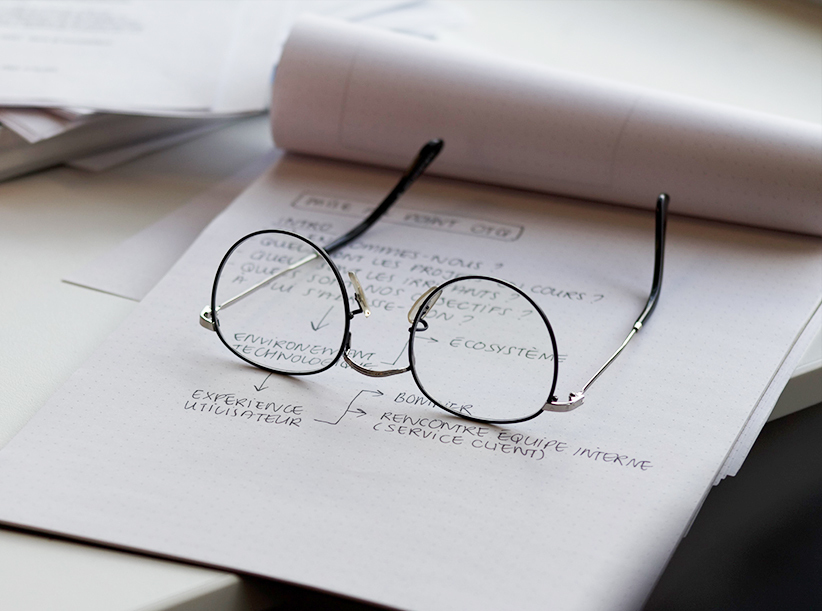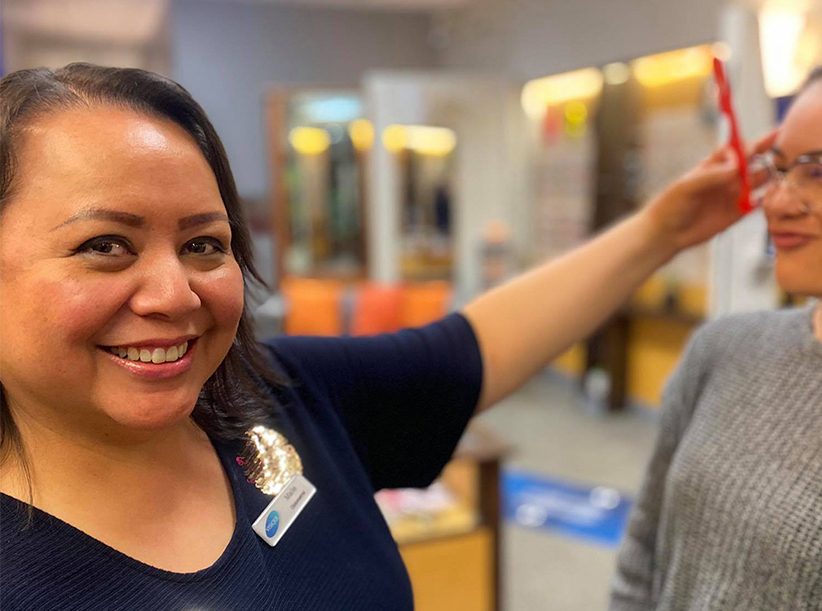Your Essential Eye Check-Up Guide

When it comes to looking after your eyes, being proactive is key. We’ve covered essential eye health tips, the various conditions that can affect your vision, and the daily practices you can implement to ensure you are protecting your eyes at work, rest and play.
But what about eye tests? For many of us, we don’t really think about them until we have an issue arise, but a regular check-up can be the key to discovering issues early and giving you the best chance at keeping them at bay.
In this month's blog, we’ll dive into the world of eye care and give you all the information you need about eye tests, how they work and why you should be getting an eye check-up regularly.
Why are eye tests important?
As the old adage goes, the eyes are the window to the soul. They reveal a lot about your health and can be a key indication of illness.
With more than 50 percent of sight loss being preventable, a regular eye health test can give you confidence, peace of mind and help you diagnose eye issues in their early stages, where the best prospect for management and recovery is.
A regular eye check can improve your quality of life, help you detect issues like cataracts, age-related macular degeneration or even glaucoma. An optometrist can even detect other health conditions like diabetes, high blood pressure or high cholesterol among others, so you can consider an eye test as a regular glance into that window to check you are healthy.
For example, macular degeneration is estimated to account for 50% of blindness amongst New Zealand adults. It is thought that over the age of 50, 1 in 7 adults will develop some form of it. Detecting macular degeneration in its early stages through an eye examination is your best tool to prevent loss.
How often should I have my eyes examined?
How often you should get your eyes examined depends on several factors, like your age, health status and eye condition.
The New Zealand Association of Optometrists recommends eye examinations every two years.
Your optometrist will advise you if more frequent eye examinations are required. Reasons may include:
· Rapidly deteriorating vision
· Eye disease
· Have a family history of vision problems
It also goes without saying that if you have sudden loss of vision or an acute injury to the eye, you should see your optometrist or attend an emergency clinic right away.
Children are usually screened before starting primary school, as part of the B4 School Check. The second vision screening is usually when they reach intermediate school age. Especially during the primary school period, parents should be observant of any vision problems and make sure they are checked via an eye examination. If any vision issues are present, the earlier they are picked up, the better. Even if there is just a slight suspicion, get it checked out!
Of course, these are just general guidelines. The best way to keep on top of your unique requirements is to discuss your condition with your optometrist and plan your examination frequency together.
How much does an eye test cost?
The cost of your eye test will depend on whether additional tests are required and your optometry requirements. For price indications, check out our website, or give us a call to discuss your options.
If you have a Community Services Card that is current, at Visique Eye Spy, we can access a spectacle subsidy for children up to the age of 15 that can go towards eye examinations and visual aids.
We also have “buy now pay later” options such as Afterpay, Genoapay, Q Card, Farmers card to name a few.
What is the typical procedure for an eye test?
An eye examination includes various tests of eye parameters, checking your vision and a comprehensive eye health examination. Additional tests such as colour vision are done when required. In every eye examination, we are screening for various eye conditions such as cataracts, macular degeneration, and glaucoma to name a few.
Your optometrist will review your medical history, discuss your results and if required, recommend treatment options, visual aids, and the frequency of your repeat eye examinations.
It is important to remember that workplace vision screenings, driver licence vision checks, and diabetic retinal screening appointments are not a substitute for a full eye examination.
Can you get your eyes tested while pregnant?
It is most definitely safe to have your eyes tested while pregnant and is very important in monitoring your overall health during this time. Women frequently notice that their vision is affected during pregnancy. This can be changes in the body affecting the eyes, which should return to normal afterwards. In any case, seeing your optometrist to rule out other issues and give you peace of mind during this time can be a great idea.
How long does an eye test take?
An eye examination, due to the more in-depth screening required, can take anywhere between 45 minutes to an hour or more. Sometimes additional tests and extra appointments are required. We want to ensure the best outcome for your eyes, which means not rushing the process.
Have more questions? No problem. We understand eye examinations can be daunting and maybe even a bit confusing. We’re here to help you approach it with confidence and implement them into your routine for healthy eyes and peace of mind year-round. As an essential step for preventing a wide range of conditions that can lead vision loss or other issues, everyone should make time to schedule one routinely. It’s like a warrant of fitness for your eyes.
Ready to book yours? Click here to book online, or contact us for more information. We’ll find the perfect time for you. We’re proud to offer our comprehensive eye test to patients of all ages, and making the experience as enjoyable as it can be for you. We look forward to seeing you.
The Eye Spy Team
